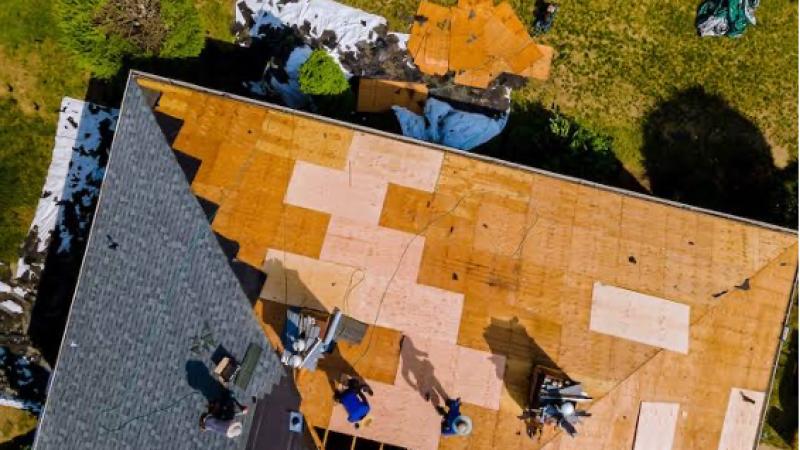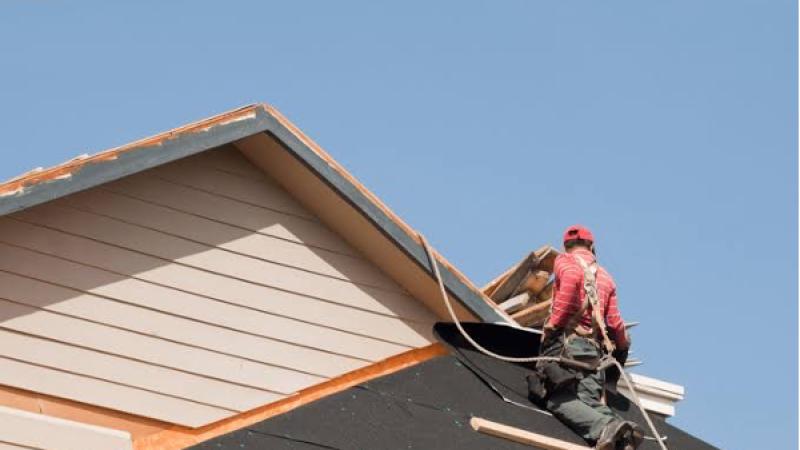How to Budget for Roof Replacement in Rental Properties

Owning a rental property can be a terrific way to boost your income. Still, it is your obligation as a landlord to keep the property in good shape for your tenants. You'll need to successfully learn how to budget for extensive and little repairs. This action also includes more significant repairs and improvements, such as roof replacement. However, this might be more challenging to budget for than smaller ones.
Maintaining a rental property's structural integrity is a legal requirement and an essential investment in its long-term worth. Budgeting for roof replacement is an integral component of property management that requires careful attention and strategic planning.
Roof replacement, while expensive, is an unavoidable necessity that you cannot avoid. Balancing the demand for a long-lasting, weather-resistant roof with budget constraints requires a well-informed approach. In light of this, read along as this article sheds more light on how to budget for roof replacement in rental properties.
How to Budget for Roof Replacement in Rental Properties
Budgeting for roof replacement in rental properties is essential to property management. Failure to plan adequately can result in unforeseen financial consequences. Here's a step-by-step method to help you budget effectively:
1. Roof Inspection
Budgeting for rental property roof replacement begins with a thorough roof inspection. This inspection assesses the roof's current state, considering its age, material, and any evident damage. Engaging a professional roofing inspector is critical because their experience might reveal hidden issues that an uneducated eye may need to know. The inspection report will offer information on the extent of replacement necessary, any structural damage, and any additional work required, such as roof removal. Landlords should hire a local rental property manager in Northern Virginia to maintain their rental.
This information is critical for obtaining accurate cost estimates from contractors. Beginning with a thorough roof inspection, property owners may make more informed decisions about the project's scope and allocate funds more effectively, guaranteeing a successful and financially sound roof replacement endeavor.
2. Cost Estimation
Budgeting for roof replacement in rental properties necessitates precise cost estimation. Begin by acquiring quotations from reliable contractors, ensuring they cover supplies, labor, and additional work. Also, consider factors like the roof's size, pitch, and complexity, as they will influence the cost. In addition, consider whether it is necessary to remove the old top or solve underlying issues. Obtain various quotations to compare prices and services.
Remember that cheaper options may result in lesser quality and a shorter lifespan, resulting in higher long-term costs. Set up a contingency fund to cover unexpected expenses. If applicable, look into financing options such as loans or credit lines to help you manage your spending. A precise cost estimation allows you to allocate resources effectively, avoid financial surprises, and ensure a successful roof replacement project that increases the value of your property and tenant satisfaction.
3. Emergency Fund
Allocating an emergency fund is crucial when planning a budget for roof replacement on rental properties. Budget between 10% and 15% of your total spending in advance to account for potential project-related unanticipated costs. Roof replacements may reveal unnoticed problems or incidental structural damage that you must address immediately. By preventing financial strain, having an emergency fund will enable you to deal with unforeseen expenses without causing your entire budget to collapse.
This fund is a safety net for unanticipated costs, keeping your roof repair project on track and your rental property in good condition. Remember that preparedness is essential, and having an emergency fund can help you have a successful and stress-free roof replacement process.
4. Financing Options
Consider financing options when budgeting for roof replacement in rental homes to manage costs successfully. Explore loans, lines of credit, or financing programs tailored for property improvements. These choices allow you to spread the costs over time, alleviating the immediate financial impact. Compare interest rates, time frames, and eligibility criteria to find the best option.
Check if your property insurance covers roof replacement due to specific damages. Using finance options and insurance coverage guarantees, you can replace the roof as soon as possible while minimizing financial stress and maintaining the property's value and tenant satisfaction.
Top 5 Factors to Consider Before Replacing a Roof

1. Roof Condition
Examine the current roof condition thoroughly. Look for indicators of damage, leaks, or structural problems. Understanding the extent of the roof's deterioration is critical in assessing whether you must replace it. A professional inspection can provide important insight into the roof's condition, allowing you to make an informed decision about the time and scope of the replacement project.
2. Materials and Quality
Material selection is critical when replacing a roof. Consider the weather, the location of the property, and your budget. Quality materials may have a higher initial cost but last longer and require less upkeep. Weigh factors like lifespan, resistance to elements, and energy efficiency. Choose appropriate materials for your property's demands to guarantee that your investment lasts while improving energy efficiency and property value.
3. Budget and Financing
Roof replacement options are heavily influenced by budget and financing. Calculate the entire cost, including supplies, labor, permits, and unforeseen costs. Set up money for unexpected expenses. To efficiently manage expenses, look into financial options such as loans or lines of credit.
Balance your financial constraints with the need for high-quality materials and craftsmanship, as investing in a long-lasting roof can save you money in the long run. Carefully planning your funds provides a smooth roof replacement process that does not strain your resources.
4. Time Frame
When it comes to replacing a roof, timing is everything. Consider the season and weather in your area—schedule roof replacement during warm, dry seasons to avoid weather-related delays and issues. You should avoid peak roofing seasons when contractors are most likely to be busy, which can result in longer project timeframes and more significant expenses. Also, plan a timeline to create the most minor inconvenience to your renters, providing a smooth transition from the old roof to the new one.
5. Contractor Selection
When replacing a roof, selecting a qualified roofing contractor is critical. Consider requirements such as experience, reputation, and certifications. Request references and examine previous work to determine its quality. Check that they are adequately insured and licensed.
Choose a contractor who listens to your needs and delivers a clear contract outlining pricing, materials, and the project timeframe. A reliable contractor can mean the difference between a smooth, successful roof replacement and an expensive, time-consuming one.
Conclusion
Budgeting for a roof replacement on a rental property is a complex task that requires careful planning and research. It's an expense and investment in your rental property's long-term value and safety. You can effectively handle this process by assessing the roof's condition, selecting quality materials, researching financing alternatives, hiring a trustworthy contractor, and timing the project correctly.
Remember that a well-maintained roof protects your investment and assures tenant satisfaction and legal compliance. Finally, a well-executed roof replacement protects the integrity of your property, lowers long-term costs, and provides peace of mind.
More to Read:
Previous Posts:


